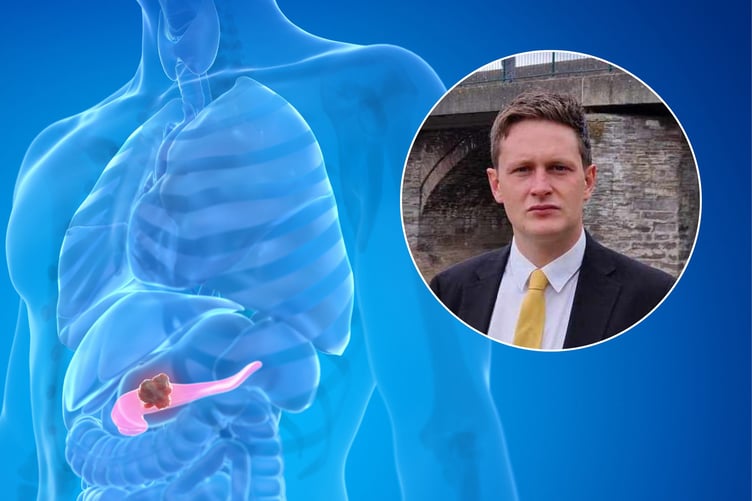The MP for Brecon, Radnor and Cwm Tawe was confronted at Liberal Democrat party conference by the tragic reality that more than half of people diagnosed with pancreatic cancer this September will die by Christmas.
David Chadwick visited a Pancreatic Cancer UK stand, decorated with tinsel, presents and a tree, to highlight the tragically low survival rates that will prevent so many people from spending the festive season with their loved ones.
The disease is the deadliest common cancer, with more than 50 per cent of people dying within just three months of their diagnosis. Around 10,500 people are diagnosed with pancreatic cancer annually across the UK.
Mr Chadwick said: “Whether we celebrate it or not, the Christmas holidays and the chance to spend precious time with our loved ones is something most of us take for granted. To hear that so many people will have that opportunity snatched away is heartbreaking.
“Through science we have made hugely welcome progress in improving the diagnosis and treatment of many types of cancer. I look forward to working with Pancreatic Cancer UK to do everything I can to help make change possible. The greatest gift we can give those affected by this devastating disease is not to give up.”
Unlike other cancers where considerable progress has been made in improving outcomes, survival for pancreatic cancer has barely improved in 50 years.
Currently just three percent of annual UK research spending on cancer is invested in pancreatic cancer.
Each visitor to the charity’s stand receives a small gift - a suggested action they can take to help end the injustice surrounding pancreatic cancer. These include supporting the charity’s calls for a new, faster patient pathway, so that all patients receive a diagnosis within 21 days of being referred for tests.
Alfie Bailey-Bearfield, Head of Health Improvement and Influencing for Pancreatic Cancer UK said: “To lose a loved one in just three months is truly devastating.
“With more research we can make early diagnosis a reality and deliver new treatment options. We can give affected by pancreatic cancer what they deserve - more than hope.”





Comments
This article has no comments yet. Be the first to leave a comment.